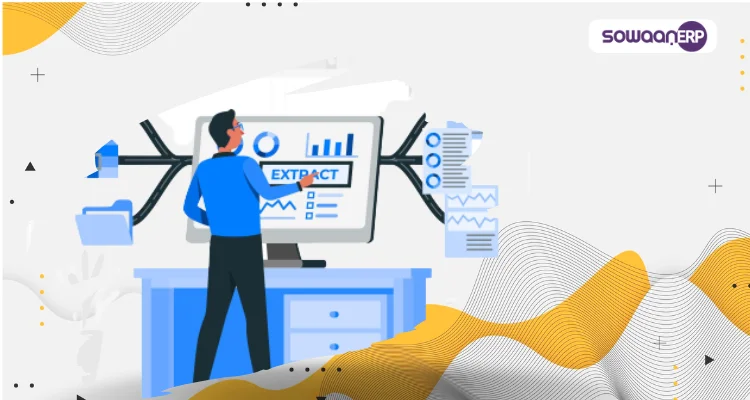
Manufacturing is a complex and highly regulated industry, with numerous laws, regulations, and standards governing every aspect of the production process. From raw materials sourcing to quality control and supply chain management, manufacturers must comply with a wide range of regulations to ensure safety, efficiency, and profitability.
However, keeping up with these regulations can be a daunting task, especially for small and medium-sized enterprises (SMEs) with limited resources and expertise. This is where manufacturing ERP software comes in. In this article, we will explore how manufacturing ERP software can help businesses in Saudi Arabia navigate the complexities of manufacturing regulations and choose the best ERP for small manufacturing businesses in Saudi Arabia.
Manufacturing ERP software is a comprehensive solution designed to streamline and automate all aspects of manufacturing operations, from planning and scheduling to inventory management, production monitoring, and reporting. With its advanced features and modules, ERP software can help manufacturers improve efficiency, reduce costs, and enhance compliance with regulatory requirements.
One of the key benefits of manufacturing ERP software is its ability to integrate all aspects of manufacturing operations into a single platform. This means that businesses can monitor and manage all aspects of production in real-time, from raw materials sourcing to finished goods inventory. With this level of visibility, businesses can identify bottlenecks, streamline processes, and reduce waste, all while maintaining compliance with regulatory requirements.
In addition, manufacturing ERP software can help businesses stay on top of ever-changing regulations by providing real-time updates and alerts on new requirements and standards. This ensures that businesses can quickly adapt to regulatory changes and remain compliant without having to spend hours researching and interpreting regulations.
When it comes to manufacturing ERP software in Saudi Arabia, businesses have a wide range of options to choose from. However, not all ERP solutions are created equal, and businesses must choose the best ERP for small manufacturing businesses in Saudi Arabia to meet their unique needs and requirements.
Some of the key factors businesses should consider when choosing manufacturing ERP software include:
-
Industry-specific functionality
Manufacturing ERP software should be designed to meet the unique needs and requirements of the manufacturing industry, with specific modules and features for areas such as supply chain management, quality control, and production scheduling.
-
Customization options
Every business is unique, and manufacturing ERP software should be customizable to meet each business’s specific needs and requirements. This includes the ability to customize workflows, dashboards, and reports to meet specific business needs.
-
Scalability
As businesses grow and evolve, manufacturing ERP software should be able to scale to meet their changing needs. This includes the ability to add new modules and features, support multiple locations, and integrate with other systems.
-
Ease of use
Manufacturing ERP software should be easy to use and navigate, with an intuitive interface that requires minimal training for users.
-
Security and compliance
With sensitive business and customer data at stake, manufacturing ERP software should be secure and compliant with relevant data privacy and security regulations.
The Role of Cloud-Based Manufacturing ERP Software in Industry
In today’s rapidly changing industrial landscape, the importance of cloud-based manufacturing ERP software cannot be overstated. ERP (Enterprise Resource Planning) software is a system that allows businesses to integrate their manufacturing, finance, accounting, and other operational processes into a single platform. The cloud-based version of ERP software takes this integration to the next level, providing anytime, anywhere access to critical data and information.
One of the key benefits of cloud-based manufacturing ERP software is its ability to streamline business processes. This includes everything from inventory management to order processing to production planning. With cloud-based ERP software, all of these functions are integrated and automated, allowing manufacturers to focus on core competencies and make more informed decisions based on real-time data.
Another benefit of cloud-based manufacturing ERP software is its scalability. As businesses grow and expand, they need systems that can grow and expand with them. Cloud-based ERP software can be easily scaled up or down depending on the needs of the business. This means that manufacturers can add new users, new functionality, or new modules as needed without having to invest in new hardware or software.
Perhaps the most significant benefit of cloud-based manufacturing ERP software, however, is its ability to increase visibility and transparency across the entire supply chain. By providing real-time data on everything from inventory levels to customer orders, cloud-based ERP software enables manufacturers to identify and resolve issues quickly, reduce lead times, and improve customer satisfaction.
Conclusion
In conclusion, the role of cloud-based manufacturing ERP software in the industry cannot be overstated. It provides a range of benefits, from streamlining business processes to increasing visibility and transparency across the supply chain. As more and more manufacturers adopt cloud-based ERP software, it is likely that we will see even greater improvements in efficiency, productivity, and profitability in the years to come.